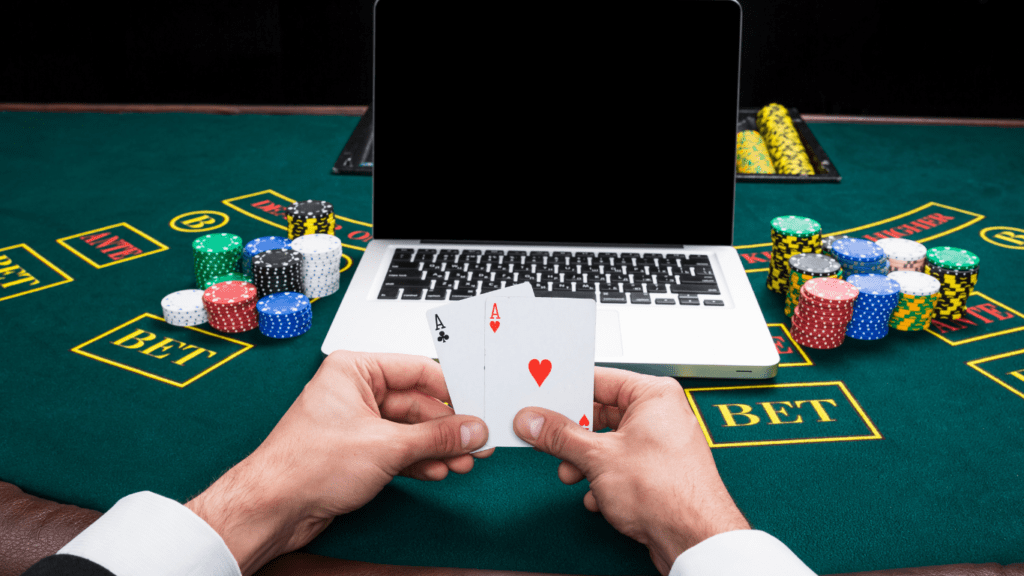The Rise Of Digital Platforms In Gambling
Digital platforms have fundamentally reshaped how gambling operates. These platforms leverage technology to expand accessibility, offering new opportunities for gamblers worldwide.
Shifts From Traditional To Online Gambling
The transition from traditional to online gambling has marked a significant shift. Physical casinos dominated gambling for decades, providing in-person betting experiences. Today, platforms like Bet365 and FanDuel allow users to gamble remotely from their devices. According to a Statista report, the global online gambling market surpassed $63.5 billion in 2022. This rapid growth highlights how digital platforms are replacing conventional gambling settings.
Live-streamed table games and digital slot machines mimic the real-world casino experience online. By integrating advanced technologies like AI and VR, platforms create immersive games that further reduce the need for physical venues.
Convenience And Accessibility
Digital platforms make gambling more convenient than ever. Players can access platforms 24/7, using smartphones, tablets, or computers. Mobile applications like PokerStars and DraftKings enable seamless gambling experiences without geographic restrictions. Payment flexibility also plays a role, with options ranging from credit cards to cryptocurrency.
The elimination of physical boundaries has increased global access to gambling. While this broad reach fosters participation, it also amplifies risks like problem gambling due to its constant availability.
Key Features Of Modern Digital Gambling Platforms

Modern gambling platforms employ advanced technologies to redefine how people engage with betting activities. Key features include mobile compatibility, live gambling, and personalized gaming experiences.
Mobile Compatibility And Apps
- Digital gambling platforms prioritize mobile compatibility to accommodate users’ preferences for on-the-go access.
- Apps from providers like Bet365 and DraftKings offer seamless interfaces, enabling users to place bets, watch live streams, and manage accounts effortlessly.
- Optimized designs ensure compatibility across smartphones and tablets, increasing user convenience.
- In 2023, over 80% of global gambling activities occurred on mobile devices, reflecting this technological shift.
Live Gambling And Interactive Technologies
Platforms incorporate live gambling features to replicate real-time experiences. Live dealer games, such as blackjack and poker, stream interactions with professional dealers, creating an authentic casino atmosphere. Interactive chat tools allow real-time player-to-player communication, enhancing social engagement. Technologies like ultra-low-latency streaming ensure a smooth experience, even for users in different time zones.
Gamification And Personalized Experiences
Gamification drives engagement by adding competitive and rewarding elements. Features like:
- leaderboards
- badges
- achievement milestones
motivate users to participate frequently. Personalization, enabled by AI algorithms, tailors game suggestions, promotions, and messages based on user preferences. For instance, systems recommend slot games matching prior play history or offer bonuses on favorite sports events, boosting player satisfaction.
Social And Psychological Impacts On Gamblers
Digital platforms create both opportunities and challenges for gamblers, with significant social and psychological consequences. These platforms influence behaviors and habits, leading to varying outcomes for users.
Risks Of Addiction And Overuse
Digital platforms increase access to gambling activities, which elevates the risk of addiction. Gamblers face constant availability through apps and websites, making it difficult to regulate usage. A 2023 study by the National Center for Responsible Gaming found that 5% of online gamblers displayed signs of problem gambling, including financial distress and strained relationships. Features like quick betting options, instant rewards, and gamified designs encourage longer sessions and higher spending.
Casual users can quickly transition into problematic patterns due to personalized promotions, such as exclusive bonuses or frequent reminders. For example, push notifications offering limited-time bonuses often drive impulsive engagement. This accessibility and reinforcement loop amplifies the risk of compulsive behaviors over traditional gambling settings.
Influence Of Social Media Integration
Social media integration intensifies gambling exposure through targeted ads, influencer partnerships, and shared gambling achievements. Platforms like Instagram and TikTok display gambling-related content that often glamorizes betting wins but omits losses, skewing perceptions of gambling outcomes. For instance, creators showcasing high-stake wins may inspire viewers to replicate strategies, leading to unsustainable behaviors.
These integrations also foster competitive social dynamics, as users try to outperform peers displayed on leaderboards or in shared gaming statistics. In 2022, over 30% of gamblers surveyed by Statista reported feeling peer pressure to continue gambling when content was visibly linked to their social profiles. Additionally, social interactions within games, such as leaderboard comparisons or multiplayer betting pools, create social validation loops that push individuals to engage more frequently, often to their detriment.


 Archer Loftus-Hills played a pivotal role in shaping the technical backbone of Gamble Today Smart. With a keen eye for detail and a passion for innovation, Archer was instrumental in developing the platform’s data-driven tools and analytics features. His expertise ensured that users could access reliable, real-time insights to make informed gambling decisions. Archer’s dedication to precision and functionality has left a lasting impact on the platform’s success.
Archer Loftus-Hills played a pivotal role in shaping the technical backbone of Gamble Today Smart. With a keen eye for detail and a passion for innovation, Archer was instrumental in developing the platform’s data-driven tools and analytics features. His expertise ensured that users could access reliable, real-time insights to make informed gambling decisions. Archer’s dedication to precision and functionality has left a lasting impact on the platform’s success.